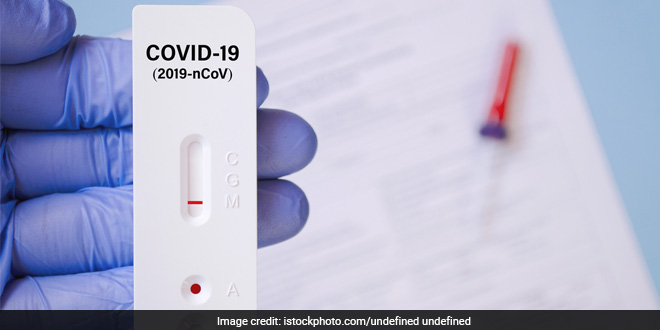Highlights
- India has one of the lowest COVID19 mortality rate in the world: Government
- In the first week of August India had a COVID-19 positivity rate of 11%
- COVID-19 positivity rate has dropped down to 8 per cent now
New Delhi: India’s COVID-19 mortality rate is one of the lowest in the world at 1.58 per cent and active cases are only 22.2 per cent of the total cases, Union Health Ministry said on Tuesday (August 25). Addressing a press conference here, Union Health Secretary Rajesh Bhushan said that the recovered cases are 3.4 times more than the active cases and recovery rate is more than 75 per cent.
The COVID-19 mortality rate in India stands at 1.58 per cent which is one of the lowest in the world. In the last 24 hours, the number of active cases has reduced by 6,400. Active cases are only 22.2 per cent of the total cases. As of August 25, 3.68 crore sample tests were conducted in the country. The recovered cases are 3.4 times more than the active cases in the country. The recovery rate is now more than 75 per cent, Mr Bhushan said.
He said the positivity percentage on the basis of seven-day rolling average was 11 per cent in the first week of August which has now come down to eight per cent.
While the number of tests has increased exponentially, there is a steady decline in COVID-19 positivity rate, he said.
Mr Bhushan said that the tests per million per day is increasing gradually. He said the figure has improved from 363 tests per million per day on August 1 to more than 600 tests per million per day.
Addressing a press conference he said,
The positive rate of COVID-19 has decreased due to the increase in the number of tests. In the last 24 hours, 60 thousand 975 new cases of the corona were reported in the country. 848 people died. 66 thousand 550 patients recovered.
Also Read: Bhubaneswar Conducts COVID-19 Tests For Inmates Of Shelter For Urban Homeless In Odisha
Divulging further Mr Bhushan said that only less than 3 per cent of the total active cases are on oxygen support and active cases are decreasing day by day in the country.
A total of 7,04,348 patients are undergoing treatment. The number of active cases is decreasing day by day in the country. Today only 15 per cent of cases come in hospitals while only 2.70 per cent of the total active cases are on oxygen support, he said.
“69 per cent males and 31 per cent of females have died due to COVID-19. 58 thousand 390 people died from Corona so far,” added Mr Bhushan.
Meanwhile, he said that India and Russia are in communication as far as Sputnik-5 vaccine is concerned.
As far as Sputnik-5 vaccine (COVID-19 vaccine developed in Russia) is concerned, India and Russia are in communication. Some initial information have been shared, he said.
Also Read: Russia Becomes First Country To Approve A COVID-19 Vaccine, Says President Putin
(Except for the headline, this story has not been edited by NDTV staff and is published from a syndicated feed.)
NDTV – Dettol Banega Swasth India campaign is an extension of the five-year-old Banega Swachh India initiative helmed by Campaign Ambassador Amitabh Bachchan. It aims to spread awareness about critical health issues facing the country. In wake of the current COVID-19 pandemic, the need for WASH (Water, Sanitation and Hygiene) is reaffirmed as handwashing is one of the ways to prevent Coronavirus infection and other diseases. The campaign highlights the importance of nutrition and healthcare for women and children to prevent maternal and child mortality, fight malnutrition, stunting, wasting, anaemia and disease prevention through vaccines. Importance of programmes like Public Distribution System (PDS), Mid-day Meal Scheme, POSHAN Abhiyan and the role of Aganwadis and ASHA workers are also covered. Only a Swachh or clean India where toilets are used and open defecation free (ODF) status achieved as part of the Swachh Bharat Abhiyan launched by Prime Minister Narendra Modi in 2014, can eradicate diseases like diahorrea and become a Swasth or healthy India. The campaign will continue to cover issues like air pollution, waste management, plastic ban, manual scavenging and sanitation workers and menstrual hygiene.
[corona_data_new]





























